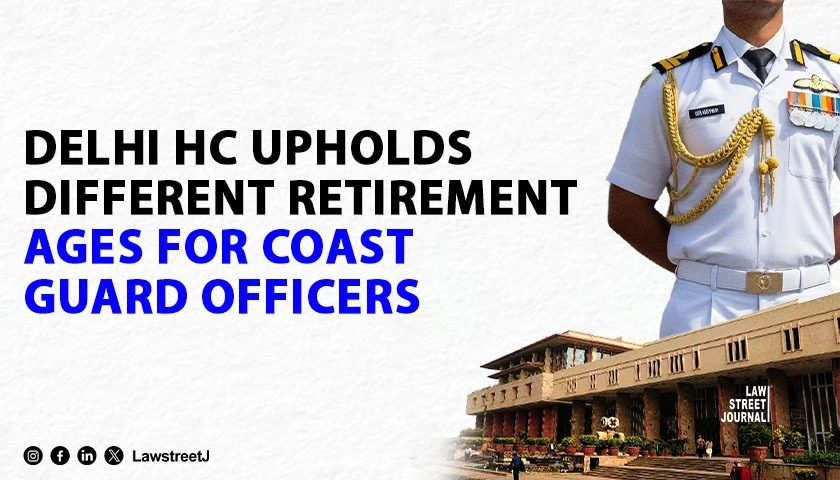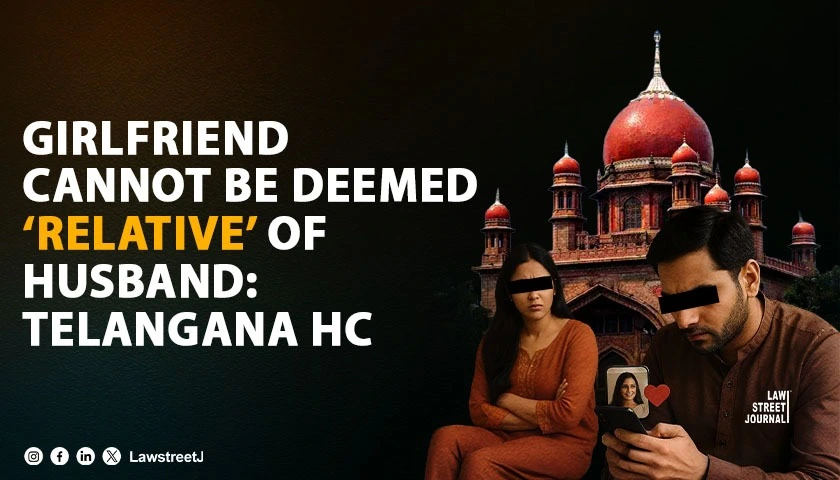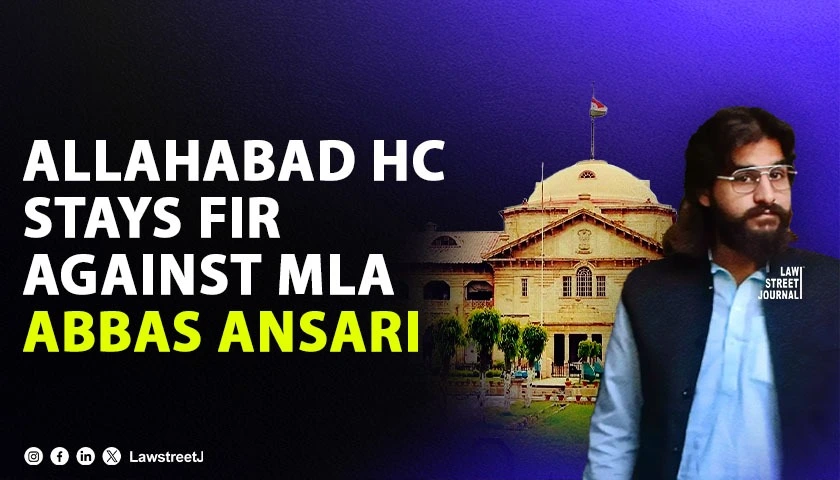New Delhi: The Delhi High Court, on November 24, 2025, delivered a significant judgment in Chetali J Ratnam v. Union of India & Ors. and connected matters, ruling that the difference in the age of superannuation for officers of the Indian Coast Guard (ICG) is legally sustainable. The bench, comprising Justice C. Hari Shankar and Justice Om Prakash Shukla, pronounced its judgment on the constitutional challenge to Rules 20(1) and 20(2) of the Coast Guard (General) Rules, 1986.
The petitioners, retired officers of the Coast Guard, challenged the rules which provide that officers of the rank of Commandant and below retire at 57, whereas officers above the rank of Commandant retire at 60. Their primary argument was that this distinction amounted to unconstitutional discrimination, particularly relying on the Delhi High Court’s judgment in Dev Sharma v. Indo-Tibetan Border Police, which equalized the retirement age for all Central Armed Police Forces (CAPFs) personnel at 60.
The Court acknowledged that the disparity in the age of superannuation in the Coast Guard “survives,” unlike in the CAPFs following the Dev Sharma judgment. However, the bench made a “preliminary observation” that the contention that the issue is “no longer res integra, as it is covered by the judgment in Dev Sharma… is obviously incorrect,” since Dev Sharma dealt with CAPFs, and the Coast Guard, though a paramilitary force, is not a CAPF.
A key point of contention was the application of Article 33 of the Constitution, which empowers Parliament to modify fundamental rights in their application to members of the Armed Forces. The High Court of Madras, in earlier proceedings, had noted that Dev Sharma did not consider Article 33. The Delhi High Court, in the present case, agreed that the finding that Dev Sharma did not notice Article 33 is “unquestionably true.” It also noted that the Coast Guard is an “Armed Force,” as is clear from Section 4(1) of the Coast Guard Act, 1978.
The Court then examined whether the reasons cited by the Coast Guard in orders dated May 20, 2024, and December 2, 2024, were sufficient to justify the differential retirement ages under Articles 14 and 16 of the Constitution. The Coast Guard had relied on several grounds, including the need for a “younger age profile” for its “sea-going service,” stringent medical standards, command-and-control considerations, and career progression. It was also argued that, unlike CAPFs, the ICG is a maritime force, and the Indian Navy — another maritime force under the Union — also follows a differential retirement age structure.
The Court observed that while the core finding in Dev Sharma was that a difference in the ages of superannuation “would lower the morale of the members of the CAPFs,” a finding that “would apply, with equal force, to the Coast Guard,” it still needed to be examined whether the ratio of Dev Sharma could be applied to the Coast Guard.
The matter was heard by the bench of Hon’ble Mr. Justice C. Hari Shankar and Hon’ble Mr. Justice Om Prakash Shukla. The judgment was reserved on July 29, 2025, and pronounced on November 24, 2025. The petitioners were represented by Mr. Himanshu Gautam, Mr. Kishan Gautam, Ms. Anuradha Pandey, and Mr. Lokesh Sharma, while the respondents were represented by Mr. Raj Kumar Yadav, Senior Panel Counsel, along with Mr. Vaibhav Bhardwaj and Ms. Tripti Sinha, and Mr. Jaswinder Singh, learned CGSC.
Case Details:
- Case Name: Chetali J Ratnam v. Union of India & Ors.
- Case Number: W.P.(C) 6028/2021 and connected matters
- Court: High Court of Delhi
- Reserved on: 29 July 2025
- Pronounced on: 24 November 2025



![Delhi High Court Sets Aside Arbitral Tribunal's Award Against NHAI in Highway Project Delay Case [Read Judgment]](/secure/uploads/2023/07/lj_9605_23374c2e-392c-4491-a2fe-f2f12fc5272f.jpg)
![Delhi Court Rejects Stay Request in Defamation Case Against Rajasthan CM Ashok Gehlot [Read Order]](/secure/uploads/2023/08/lj_5208_80de1ddc-d76a-4f7f-b180-408e3ae14fb4.jpg)







